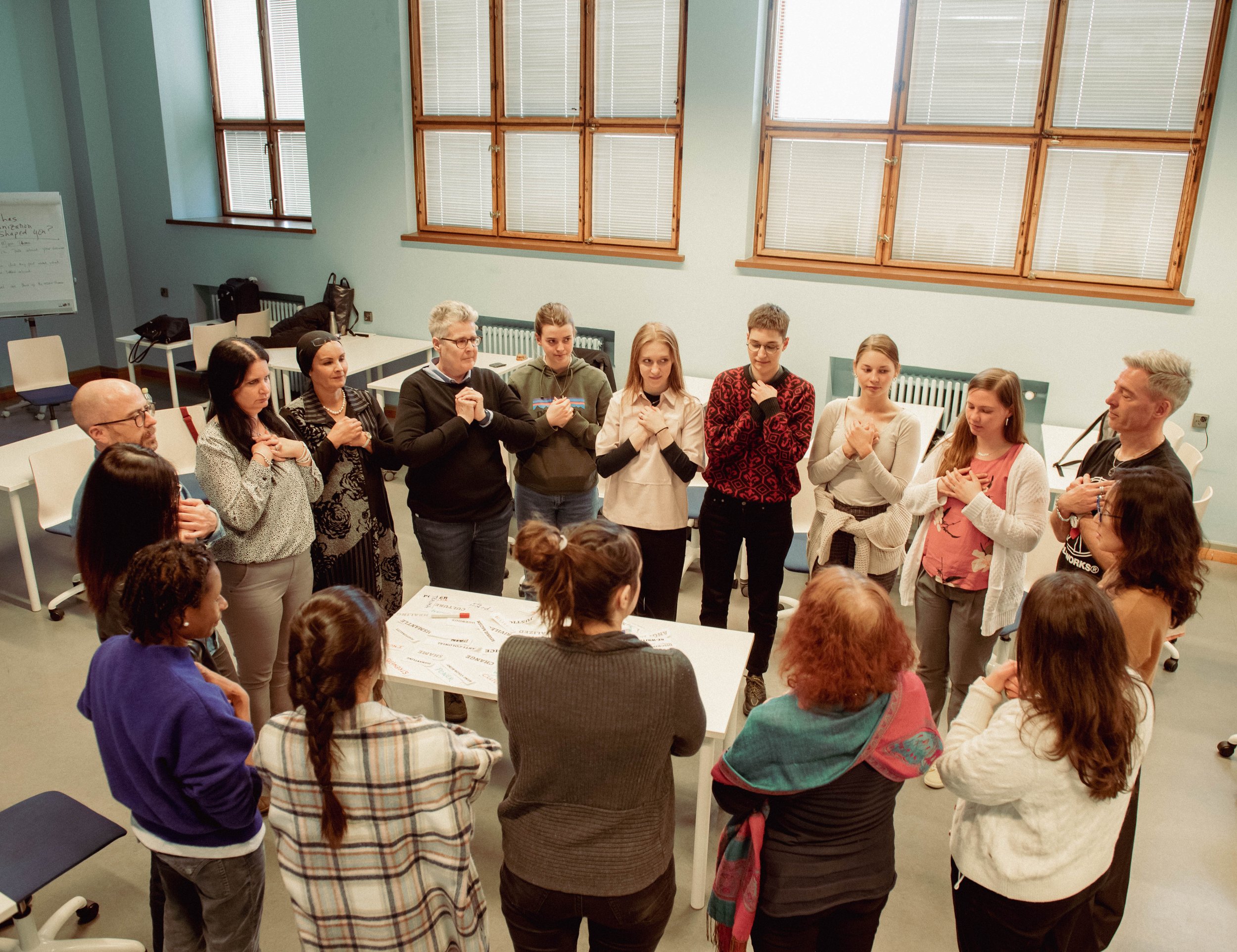
Decolonizing social work
Extractive capitalism and settler colonialism have fundamentally shaped the world we live in today. Social work is deeply rooted in the ongoing legacy of settler colonialism. How do we challenge knowledge systems that legitimize social hierarchies and inequalities? How can we decolonize our ways of being, knowing and acting in social work? How can we work towards non-carceral approaches to healing?
The Nordic University Circle on Decolonizing Social Work
An ad hoc circle on decolonizing social work has been added to the Nordic Summer University. The first meeting took place at the University of Helsinki on 9-10 May 2022. It was a powerful and inspiring discussion on the impact of colonization on our lives with a great group of people.
A second circle was held in Malmö, Sweden on 23-24 March 2023. This meeting used the method of Forum Theatre to explore decolonizing approaches to social work.
Reimagining Social Work Ancestry: Toward Epistemic Decolonization
Contextualizing disciplinary histories through the personal stories of forerunners creates compelling narratives of the craft of evolving professions. By looking to our intellectual and practitioner ancestors, we participate in a dialogue with a history that shapes our contemporary professional identities and aspirations for the future. Grounded in a decolonizing approach to social work, this article examines how the discipline shapes its professional identity and ways of knowing by centering the role of canonical founders in the social work curriculum. The global social work origin story in the curriculum often centers on Anglo-American ancestors that illustrate the development of the disciplinary boundaries of the international profession. One method of decolonizing social work epistemology at the intersection of ancestors and professional lineage could be to look to public history as a pedagogical tool in the curriculum. The article concludes by examining the use of podcasts as having the potential to decolonize the process of collecting, analyzing, and disseminating local knowledge of ancestors thus challenging the top-down approach to expert-driven epistemologies.
Decolonizing Pathways towards Integrative Healing in Social Work
Taking a new and innovative angle on social work, this book seeks to remedy the lack of holistic perspectives currently used in Western social work practice by exploring Indigenous and other culturally diverse understandings and experiences of healing.
This book examines six core areas of healing through a holistic lens that is grounded in a decolonizing perspective. Situating integrative healing within social work education and theory, the book takes an interdisciplinary approach, drawing from social memory and historical trauma, contemplative traditions, storytelling, healing literatures, integrative health, and the traditional environmental knowledge of Indigenous Peoples.
In exploring issues of water, creative expression, movement, contemplation, animals, and the natural world in relation to social work practice, the book will appeal to all scholars, practitioners, and community members interested in decolonization and Indigenous studies.
The book is available open access here Decolonizing Pathways towards Integrative Healing in Social Work


